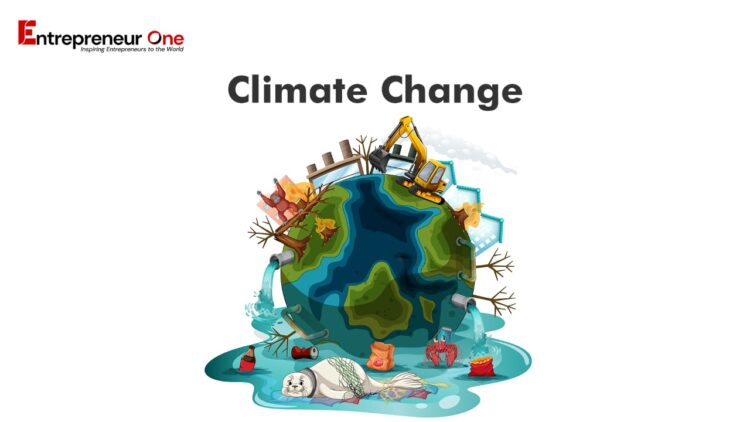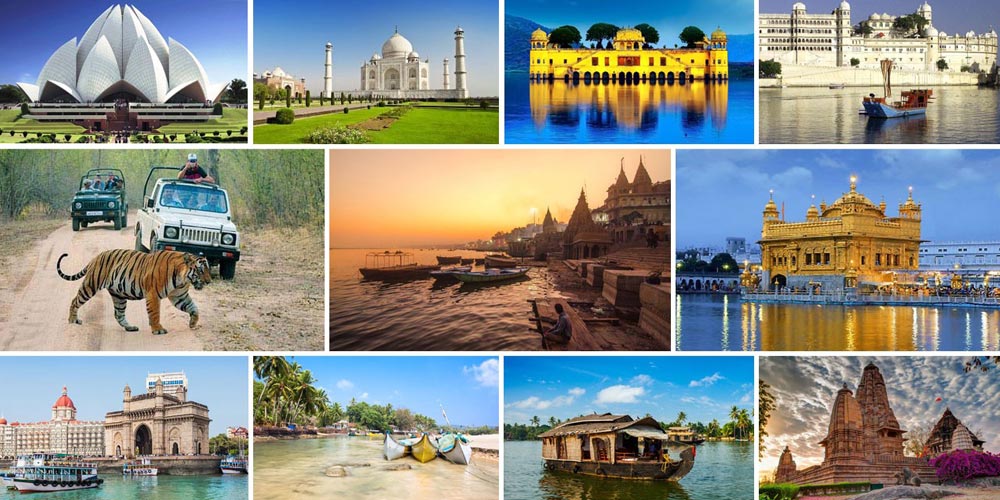Climate change is one of the most pressing issues of our time, with far-reaching consequences for our planet and its inhabitants. It refers to the long-term warming of the planet due to an increase in average global temperature, primarily caused by human activities that release greenhouse gases, such as carbon dioxide and methane, into the atmosphere. These days, what a climate should be is not that; instead, it is changing thoroughly.
CAUSES OF CLIMATE CHANGE
- Greenhouse Gases: The burning of fossil fuels, such as coal, oil, and gas, releases carbon dioxide, methane, and other greenhouse gases into the atmosphere, trapping heat and leading to global warming. This is the main reason for our environmental disturbance and climate change.
- Deforestation: The clearance of forests for agriculture, urbanization, and other purposes releases carbon dioxide and reduces the ability of forests to act as carbon sinks. People tend to destroy nature for their satisfaction.
- Land Use Changes: Changes in land use, such as the conversion of natural habitats to agricultural land or urban areas, can lead to the release of stored carbon into the atmosphere. Urbanization is spreading rapidly, increasing the number of people on agricultural lands and decreasing the fertility of land.
- Industrial Processes: Various industrial processes, such as cement production and the manufacturing of steel, also release large amounts of greenhouse gases. Along with that, the usage of fertilizers is increasing in the crops.
EFFECTS OF CLIMATE CHANGE
- Rising Sea Levels: The melting of glaciers and ice sheets and the thermal expansion of seawater are causing sea levels to rise, leading to coastal erosion, flooding, and saltwater intrusion into freshwater sources.
- Extreme Weather Events: Climate change is linked to an increase in extreme weather events, such as heat waves, droughts, and heavy rainfall, which can have devastating impacts on communities and ecosystems.
- Changes in Precipitation Patterns: Climate change is altering precipitation patterns, leading to droughts in some areas and floods in others, which can have significant impacts on agriculture, water resources, and ecosystems.
- Loss of Biodiversity: Climate change is altering ecosystems, leading to the loss of biodiversity, as plants and animals are unable to adapt to changing conditions.
CONSEQUENCES OF CLIMATE CHANGE
- Food Insecurity: Climate change is impacting agricultural productivity, leading to food insecurity, particularly in vulnerable communities. Land is less, yet population is high, due to which chemicals are widely used on the crops.
- Water Scarcity: Changes in precipitation patterns and increased evaporation due to warmer temperatures are leading to water scarcity, affecting human consumption, agriculture, and ecosystems. Several factories tend to throw their waste in water, causing water pollution.
- Human Migration and Conflict: Climate change is contributing to human migration and conflict, as people are forced to leave their homes due to rising sea levels, droughts, and other climate-related disasters.
- Economic Impacts: Climate change is having significant economic impacts, from damage to infrastructure and agriculture to increased healthcare costs and lost productivity.
SOLUTIONS TO CLIMATE CHANGE
- Transition to Renewable Energy: A rapid transition to renewable energy sources, such as solar and wind power, is essential for reducing greenhouse gas emissions.
- Energy Efficiency: Improving energy efficiency in buildings, transportation, and industry can significantly reduce energy consumption and emissions.
- Electrification of Transportation: Promoting the adoption of electric vehicles and public transportation can reduce emissions from transportation.
- Carbon Capture and Storage: Developing and deploying carbon capture and storage technologies can reduce emissions from industrial sources.
- Sustainable Land Use: Implementing sustainable land use practices, such as reforestation and agroforestry, can sequester carbon dioxide and reduce emissions.
INDIVIDUAL ACTIONS TO ADDRESS CLIMATE CHANGE
- Reduce Energy Consumption: Reduce energy consumption by using energy-efficient appliances, turning off lights, and insulating homes. This will help in saving the energy as well as the environment.
- Use Renewable Energy: Invest in renewable energy sources, such as solar panels or renewable energy credits. Using nonrenewable energy may affect our climate widely, resulting in climate change.
- Eat a Plant-Based Diet: Eat a plant-based diet, which tends to have a lower carbon footprint than meat-based diets. Eat a balanced diet to live a healthier life.
- Conserve Water: Conserve water by taking shorter showers, fixing leaks, and using water-efficient appliances. Due to climate change, global warming is rising rapidly, due to which our water is also getting dirty. Glaciers are melting, leading to less filtered water.
- Reduce, Reuse, Recycle: Reduce, reuse, and recycle to minimize waste and reduce greenhouse gas emissions.
CONCLUSION
Climate change is a pressing global issue that requires immediate attention and action. Understanding the causes, effects, and consequences of climate change is essential for developing effective solutions. By working together to reduce greenhouse gas emissions and transition to a sustainable, low-carbon economy, we can mitigate the worst impacts of climate change and create a more sustainable future for all. If we do conservation of our environment, our environment will conserve us.
REFERENCES
- IPCC (2013). Climate Change 2013: The Physical Science Basis. Contribution of Working Group I to the Fifth Assessment Report of the Intergovernmental Panel on Climate Change.
- National Oceanic and Atmospheric Administration (NOAA) (2020). Global Climate Change.
- United Nations (2020). Climate Change.
- World Health Organization (WHO) (2020). Climate Change.














